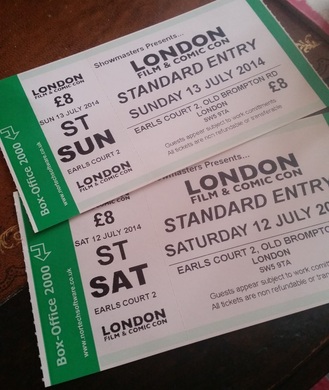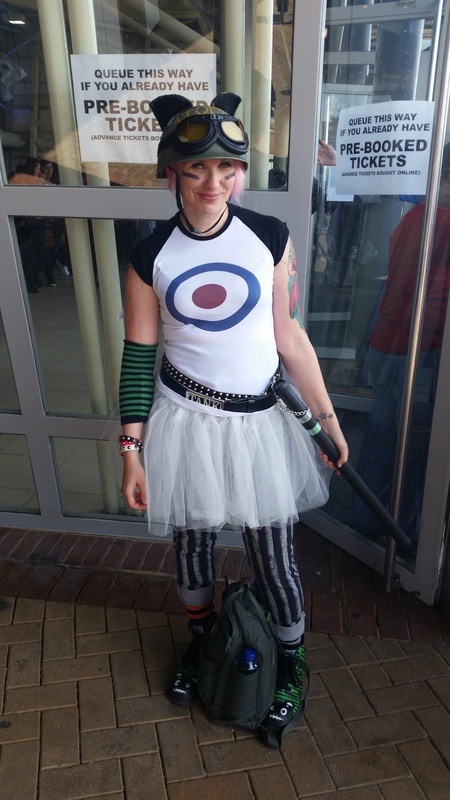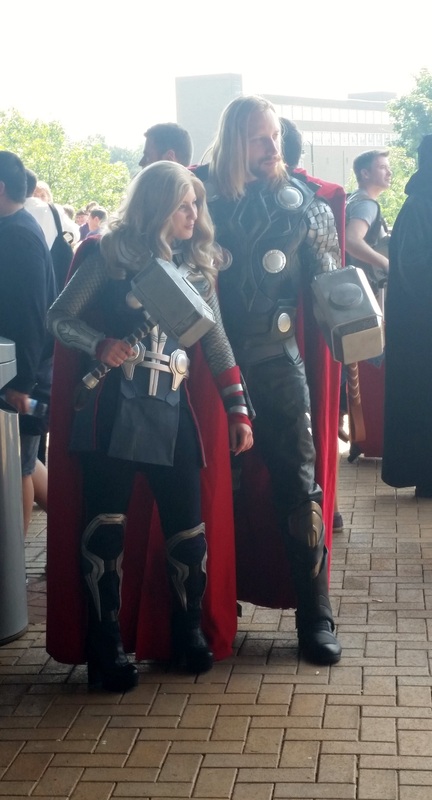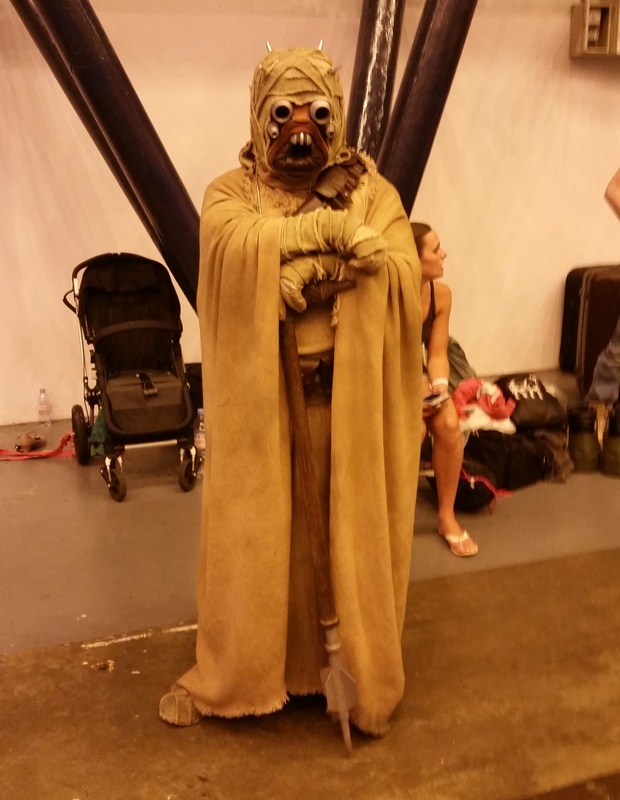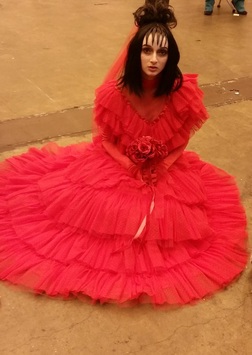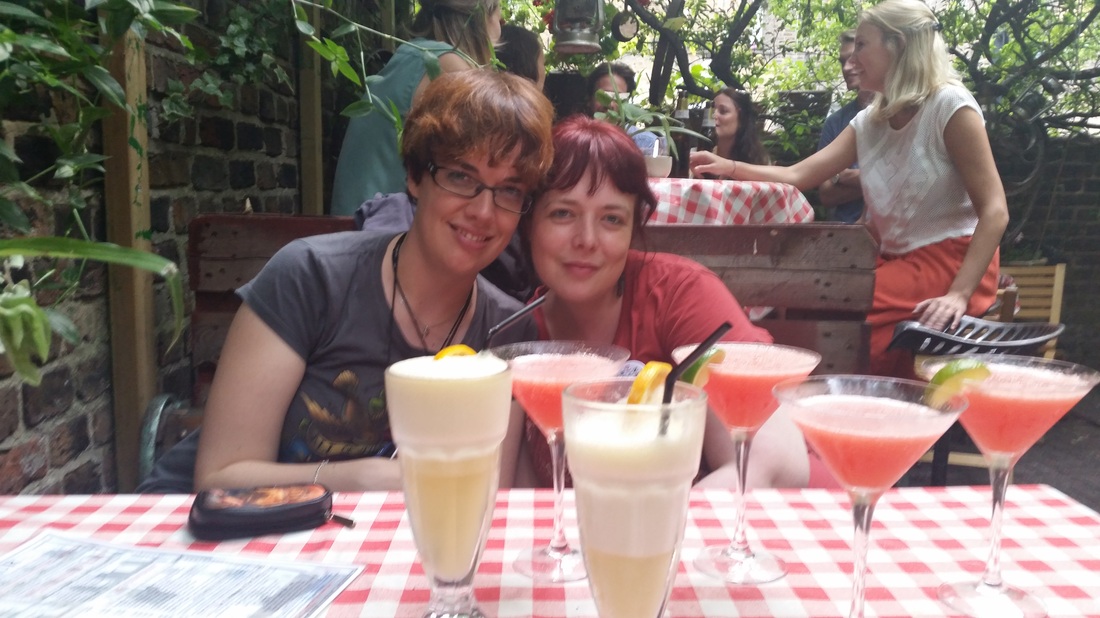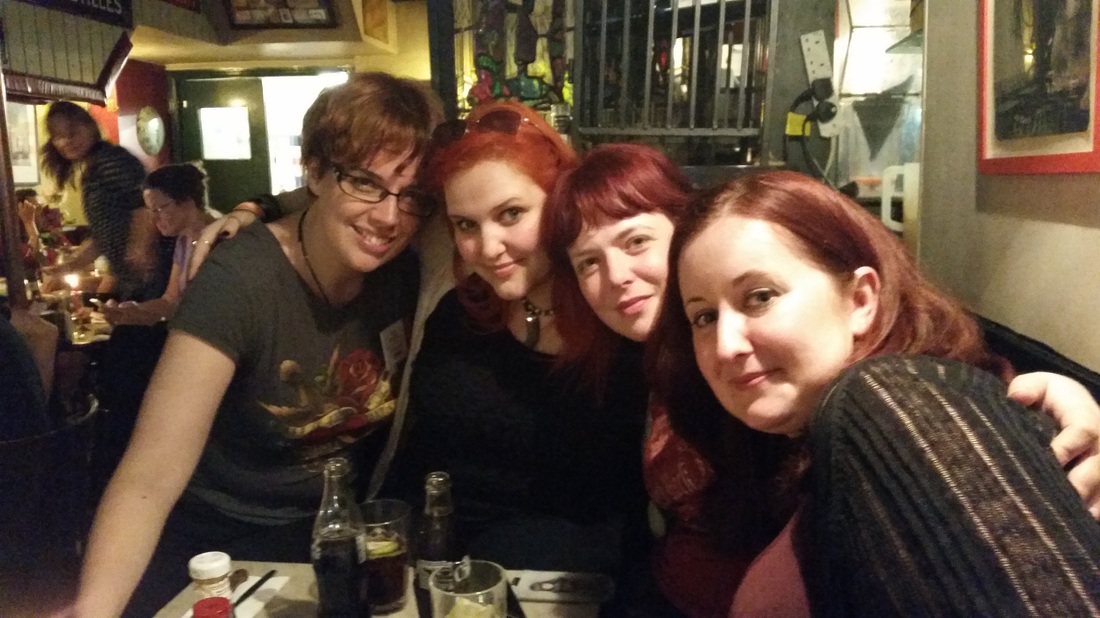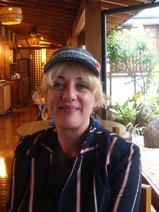Before we get onto the bookish stuff, here are some of the fantastic cosplays I saw:
THE BOOKISH STUFF

Malorie Blackman kicked off YALC in style by giving her opening speech in Klingon!
Patrick Ness joked that he 'was brought up by scary evangelical Christians so I basically grew up in a dystopia.'
Sarah Crossan asked 'How do you survive when the worst thing you can imagine happens? Dystopia looks at that.'
Malorie Blackman was asked why dystopias and not utopias? Her answer: 'Stories thrive on conflict. I just read Dante's trilogy. The part set in Hell is far more interesting than the sections in Heaven!'
Patrick Ness joked that living in a dystopia is like being a teenager: 'Every day seems like the end of the world. There are lots of rules but no one will tell you what they are.'
Malorie Blackman: 'We love books that look at the world in a fresh and different way, and dystopians do that.'
Patrick Ness: In response to the question 'Have all possible dystopian stories already been written?' 'A book isn't a song, it's the performance of a song. You can choose a song that's been done before, because each performance will be different.'
Malorie Blackman said with a smile 'If my books aren't upsetting somebody somewhere, I'm not doing it right!'
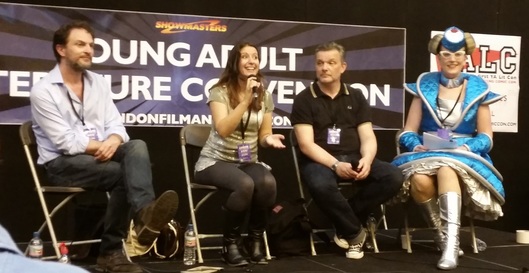
Marcus Sedgwick: 'I wrote my first graphic novel because I had writer's block. I was exploring different types of writing and I remembered how much I used to love comics as a child.'
Ian Edgington: 'Word count must be kept to much more stringently in graphic novels. A regular novel can be 20,000 words longer than expected and it's not a big deal. But that would be suicidal for an illustrated book!'
Marcus Sedgwick: 'One of the best things about comics and graphic novels is the collaboration.'
Ian Edgington half-joked that 'As a writer you have to brace yourself for the artist's interpretation! It might not be what you expect.'

The chair, Mark Aplin, opened with a question about why the panellists chose to write YA fantasy, rather than adult, and if there were differences:
Ruth Warburton: 'YA readers are fearless. YA is open to limitless possibilities.'
Frances Hardinge: 'I think you need to give sex and violence more weight and thought in YA, rather than sprinkle them on like condiments which Adult sometimes does.'
Jonathan Stroud: 'Compared to Adult Fantasy, YA is quicker and more nimble and more personal. It's more about celebrating the individual.'
Amy McCullough: 'I like to know and research as much as I can about my fantasy world - and then pare it down as much as possible.'
Jonathan Stroud: 'The most fascinating fantasies are often worlds where there's just a slight shift away from our own - just one thing that's different.'
Ruth Warburton: 'We're all writing fanfic, really! All books are populated by the books which the author has read.'
Ruth Warburton: 'Whatever you do, stick to the rules you've invented for your world!'
Frances Hardinge: 'I love travel for research and inspiration. I've claimed clambering about on volcanoes against tax!'
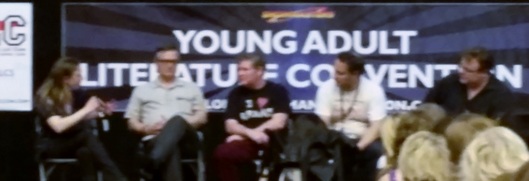
Derek Landy joked that 'MG and YA Horror is a gateway drug for young readers before they move onto adult writers like Stephen King.'
Darren Shan: 'A little description goes a long way. I prefer to let people imagine characters for themselves.'
Derek Landy: 'What I love about writing a series is that you get to fully explore characters as they grow and change.'
Charlie Higson on series:' 'To quote Tolkein, "The tale grows in the telling." Also if you find you have too many characters and you don't know what to do with them at the end of a long series - you can always take a leaf out of GRR Martin or Stephen King's book and gather a whole bunch of them together and kill them all off!'
Derek Landy, on how he channels his younger self to write books for kids and teens: 'You don't lose the ages you've been before. The 15-year-old is still inside you. You don't forget what it was like to be that age.'
Derek Landy on what he likes best about writing a long series: 'You get to make your readers care so much about your characters... and then you kill them. *evil laugh*'
(Which I sadly don't even have a fuzzy picture of, which is a pity because Tanya Byrne has the most kickass blue hair.)
Julie Mayhew: 'I think most authors have a writing age they automatically slip back to. Mine is fifteen.'
Tanya Byrne: 'The joy of writing villains or bad girls is that they can do and say stuff that you yourself would never do.'
Holly Smale: 'We all still have the child within us, but some of ours are noisier than others'!'
Tanya Byrne, in response to 'Do you feel a responsibility to represent your readers in your stories?' - 'NO. I just try to tell stories you haven't heard before.'
Tanya Byrne: 'Bad girls are more interesting. After all, we're all just a couple of bad decisions away from disaster.'
Holly Smale: 'There's so much pressure on women to be perfect. Authors aren't helping if all their female characters are shiny and perfect. It just makes girls feel crappier. Anyway, flawed characters are more interesting.'
Holly Smale, in response to 'Do you feel publishers take female authors less seriously?' - 'Well, I write comedy, so I'm happy not to be taken seriously!'

Holly Black: 'Fairy tales are all plot and no character. Often the characters aren't even named, they're just an archetype. So the minute you turn the characters into real people, you automatically change the fairy tale and make it your own.'
Sally Gardner: 'Fairy tales allow you to go into the dark, dark wood of the psyche - but only as far as you're comfortable with.'
Sally Gardner: 'It's a misunderstanding that fairy tales are for kids. They're actually a vehicle for exploring topics which couldn't be spoken about in the family - like puberty, incest, and other dark things.'
Sally Gardner continued: 'For example, the original Cinderella has her father, the king, looking for a bride. He has a ring, and whosoever's finger fits the ring, he'll marry her. He searches the whole kingdom, but it doesn't fit anyone's... so he tries it on his daughter's hand. And it fits. So a horrified Cinderella runs away, and the story we know begins...'
Holly Black: 'What I find fascinating about fairies - as opposed to vampires, werewolves etc - is that they have never been human. So they have a completely different morality, and a focus on odd things like extreme courtesy.'
Sally Gardner says she 'used to go walking and tell my stories to myself out loud. So, naturally, if I bumped into anyone, they thought I was quite mad. But now, in the age of bluetooth, everyone just presumes I'm talking on the phone, so I can talk to myself with impunity!'
Sally Gardner: 'I never want to write the same book twice.'
Holly Black finds it weird that we make children give up shared storytelling and games. 'Why should we?'
Sally Gardner: 'Our society encourages girls to grow up far too young, and boys not to grow up at all.'
Sally Gardner: 'Fairy tales are a slow knife in the flesh, not wham-bam like superhero stories.'
